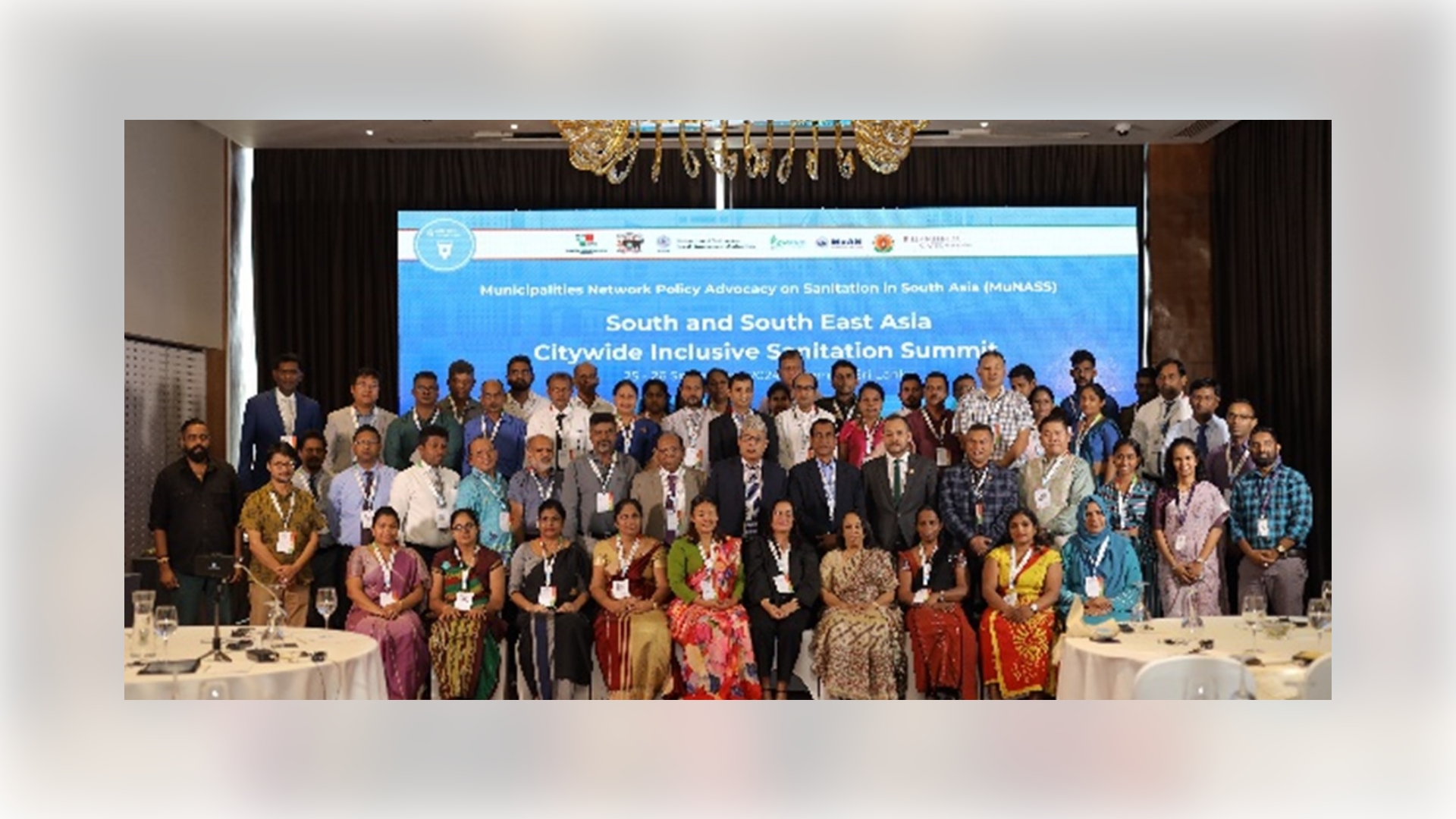September 25-26, 2024 | UCLG ASPAC, under the framework of Municipalities Network Advocacy on Sanitation in South Asia (MuNASS), highlighted the urgency for regional collaboration to address “Safe Sanitation for All” through the South and South East Asia City-Wide Inclusive Sanitation (CWIS) Summit 2024. Hosted by the Federation of Sri Lankan Local Government Authorities (FSLGA), participating city mayors agreed on the importance of learning and knowledge exchange to develop sustainable solutions for achieving SDG 6.2, focusing on institutionalising CWIS for marginalised communities. The Summit underscored that inclusive sanitation can only become a reality for all through united regional efforts. The two-day event brought together representatives from Bangladesh, Indonesia, Nepal, Sri Lanka; Youths; Media; and Sanitation Experts. The gathering served as a dynamic platform for regional collaboration and shared learning.
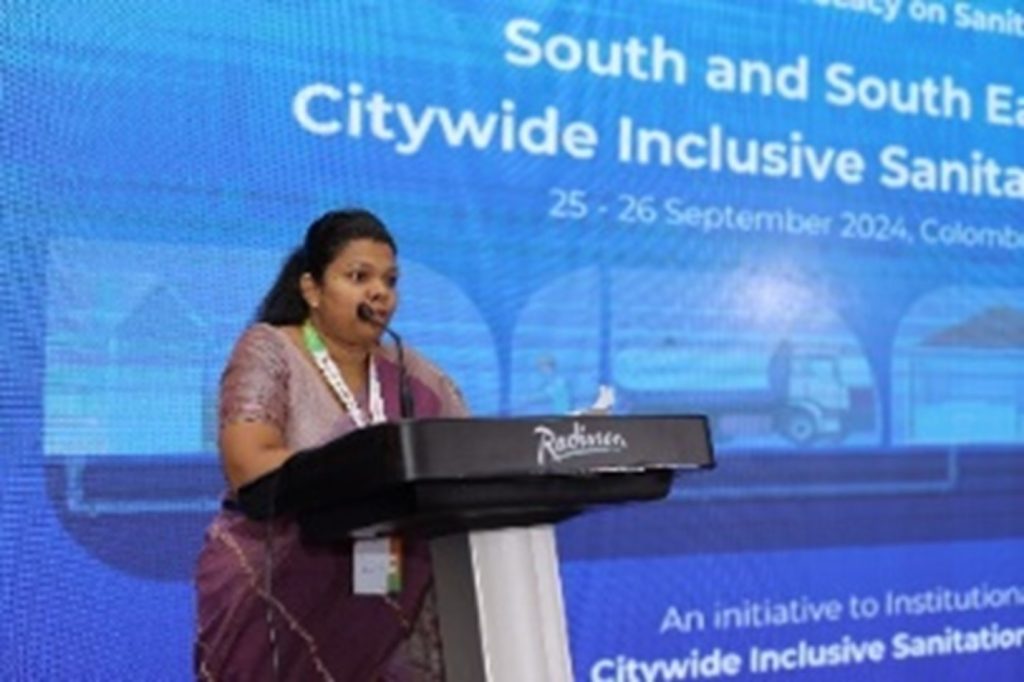
Mrs. Ranasi Gunawardhana, the Board Member of FSLGA, in her welcome speech at the Summit, mentioned that the movement for safe sanitation for all in this region is still equally important for every city until we bring that last person under the coverage of an equitable society. Ms. Gunawardhana also made a call for stronger regional cooperation and that FSLGA would play a vital role with upcoming elected city leaders in achieving the goals of SDGs.
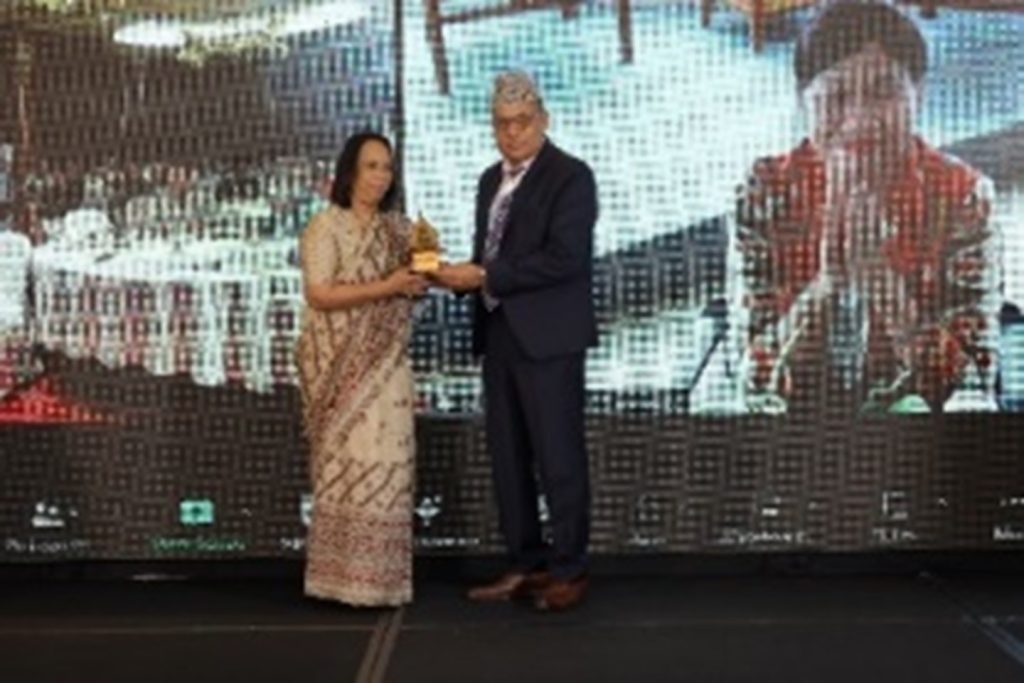
During the inaugural session, UCLG ASPAC Secretary General, Dr. Bernadia Irawati Tjandradewi emphasised the importance of sharing knowledge, experience, skills, and ideas and strengthening regional cooperation to move forward instead of waiting for decades to achieve the goals. She also urged us to keep in mind the shared vision that unites us – a vision of cities and municipalities where no one is left behind, where every individual, regardless of their background, has access to proper sanitation and enjoys a life of dignity and opportunity. Dr. Bernadia also mentioned that we must not lose sight of the pressing issue at hand – ensuring that every resident in our cities has access to safe and dignified sanitation.
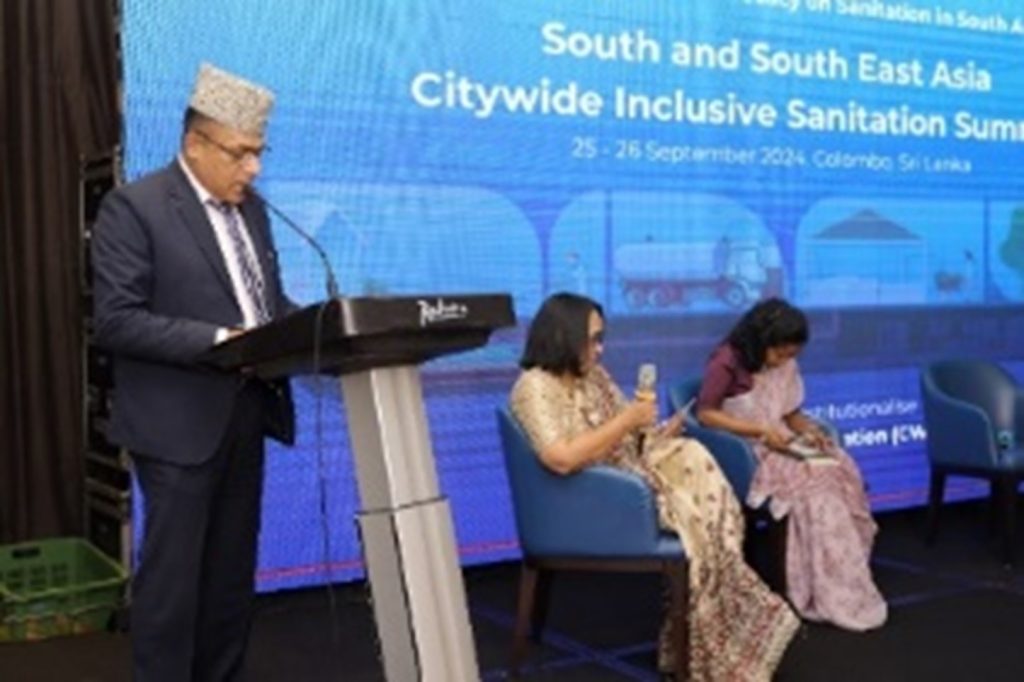
UCLG ASPAC Co-Chair and MuAN President, Mr. Bhim Prasad Dhungana in his opening session speech made a call for more collaboration among South and Southeast Asian cities for sharing technologies and innovative ideas to use the local resources for achieving SDG 6.
Discussions included: 1) Sharing of Inclusive Sanitation Best Practices for Sustainable Development (Sanitation Data/Shit Flow Diagram Interventions, Learnings and Opportunities, Transformative Impacts and Navigating Success, Inclusive Sanitation Best Practices for Sustainable Development); 2) Sharing Regional Experiences (Sewerage Water Treatment Process – Successes and Lessons Learned, Women Engagement in CWIS Decision Making Process, Inclusive Sanitation Experience, Institutionalising CWIS through Horizontal Sharing of Learning); and 3) Role of Local Government Associations for Achieving SDG 6.2 Outcomes: Challenges and Way Forward.
CLICK HERE For Presentation Materials
The two-day event concluded with a visit to observe the Kandy Municipal Council (KMC) Waste Water Treatment and Fecal Sludge Management (FSM) System on September 26, 2024. The visit to the Kandy Wastewater Management System was highly insightful. It showcased the advanced technology used and the project’s commitment to environmental preservation and community health. This successful learning experience highlighted the importance of sustainable wastewater management in safeguarding vital water resources like the Mahaweli River.
Key Recommendations:
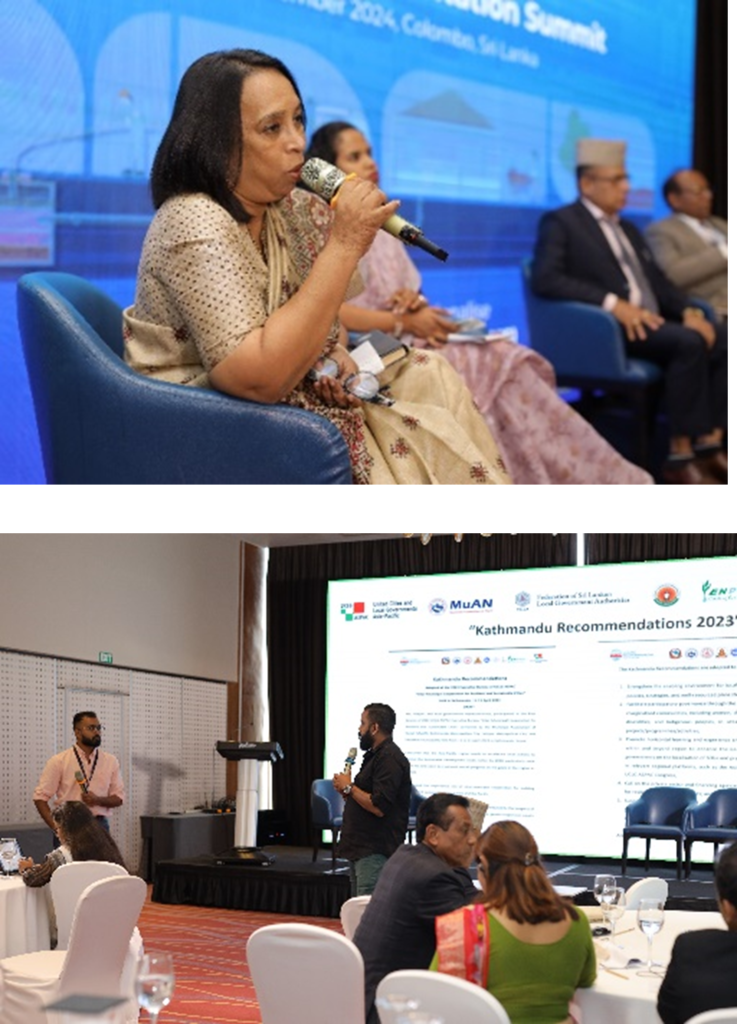
- Strengthen Regional Collaboration: Emphasise the critical need for enhanced collaboration among cities and municipalities across South Asia to effectively address shared urban challenges and develop sustainable solutions, particularly regarding sanitation.
- Promote Knowledge Exchange: Create platforms for sharing experiences and best practices among local government associations to foster learning and innovation in safe sanitation initiatives, thereby empowering all municipalities to adopt effective strategies.
- Raise Awareness on CWIS and Fecal Sludge Management: Increase efforts to educate both elected and non-elected officials about the importance of City-Wide Inclusive Sanitation (CWIS) and faecal sludge management, and integrate these concepts into regular urban development planning.
- Enhance Financial Support: Advocate for increased financial resources from both the public and private sectors to ensure that sanitation services remain accessible to all, particularly in low-income and marginalised communities.
- Advocate for Participatory Governance: Implement the Kathmandu Recommendation 2023 by encouraging participatory governance that includes low-income and marginalised communities in decision-making processes, ensuring that their voices are heard, and their needs are addressed in urban sanitation initiatives.
UCLG ASPAC has launched the Municipalities Network Advocacy on Sanitation in South Asia (MuNASS) programme, which has gained widespread praise. By empowering local government associations to enhance their capacity for safe sanitation, the programme has successfully translated policy into action. MuNASS has been recognised not only for shaping enabling policies but also for driving impactful, on-the-ground sanitation initiatives across South Asia.








